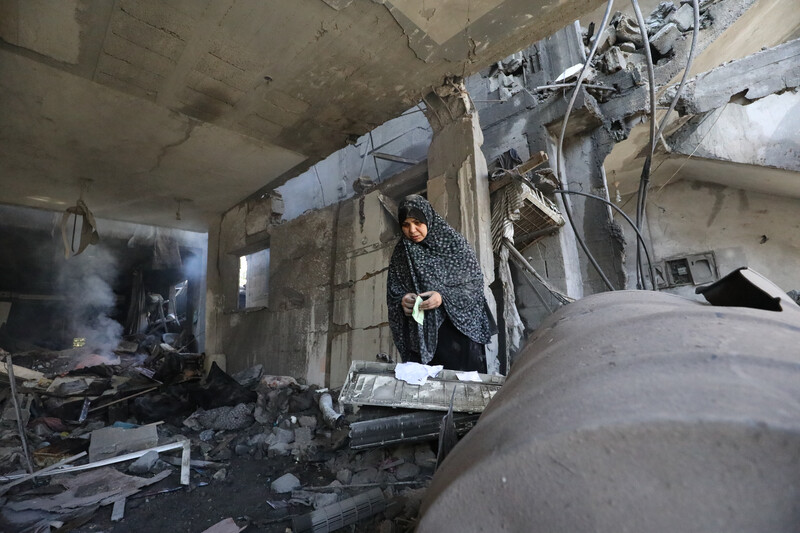On the other side of the city, in Sheikh Radwan, Hala Salama, 55, and her family live in constant anxiety. After surviving the Israeli military bombings, they now struggle with the burden of pollution caused by debris.
“I suffer from asthma, and lately I’ve felt a burning sensation in my chest and had difficulty breathing unless I use my inhaler,” she said.
“Ever since I learned about the dangers of asbestos, we’ve stopped opening the windows. But the dust from the destroyed buildings still finds its way inside. The war didn’t kill us, but this dust might.”
[…]
A future surge in asbestos-related disease cases would present a challenge beyond the capacities of Gaza’s Ministry of Health, al-Farra said.
Dr. Awad emphasized that reducing exposure to dust from debris is the primary way to mitigate these risks. This can be done by wearing protective masks and minimizing one’s presence in heavily polluted areas.
He warned, however, that such measures are only temporary solutions and insisted that Gaza urgently needs comprehensive health and environmental intervention to protect its residents from long-term catastrophic consequences.
Awful… another reason why the real Palestinian death toll is almost certainly over one hundred thousand.


